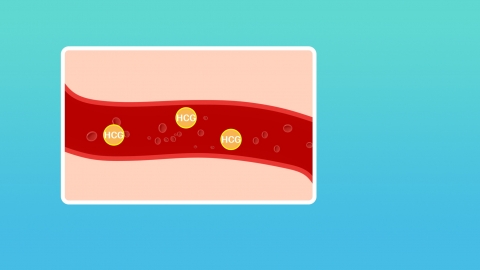What methods are available to clear a blocked blood vessel?
Vascular blockage may be caused by vascular aging, improper diet, hypertension, diabetes, deep vein thrombosis, stroke, and other conditions. It can usually be treated through lifestyle improvements, medication, surgical interventions, and other methods. If abnormalities occur, prompt medical attention is recommended. Detailed explanations are as follows:

1. Vascular Aging: With increasing age, the elasticity of blood vessel walls weakens and the vessel lumen gradually narrows, making blockages more likely. Regular vascular checkups are recommended, along with consuming foods rich in vitamins and engaging in appropriate exercise to delay the vascular aging process.
2. Improper Diet: Long-term consumption of high-fat, high-salt, and high-sugar foods can lead to lipid deposition on the vessel walls, causing blockages. Adjusting dietary habits by eating more vegetables, fruits, and whole grains while reducing intake of the aforementioned foods can lower the risk of vascular blockage.
3. Hypertension: Prolonged high blood pressure can damage the vascular endothelium, promote lipid deposition and plaque formation, leading to vascular blockage. It is often accompanied by symptoms such as dizziness, headache, and palpitations. Treatment requires following medical advice to use medications such as nifedipine sustained-release tablets, valsartan capsules, and hydrochlorothiazide tablets to alleviate symptoms.
4. Diabetes: Poor long-term blood glucose control can damage vascular endothelial cells, causing vascular complications and blockages. Symptoms often include increased thirst, excessive eating, frequent urination, and weight loss. Doctors generally recommend medications such as metformin hydrochloride tablets, insulin injection, and gliclazide tablets for treatment.
5. Stroke: Sudden blockage of cerebral vessels leads to ischemia and hypoxia in brain tissue, often accompanied by sudden headache, vomiting, limb paralysis, and speech impairment. This condition is critical. Under medical guidance, drugs such as sodium cytidine diphosphate-choline injection, edaravone injection, and urokinase injection may be used. Thrombectomy surgery may be necessary when required.
In daily life, maintaining a regular sleep schedule, avoiding late nights, quitting smoking, limiting alcohol consumption, engaging in moderate aerobic exercise, controlling body weight, and regularly monitoring blood pressure, blood glucose, and lipid levels are essential for maintaining vascular health. If symptoms such as limb numbness or speech difficulties occur, immediate medical attention should be sought.









